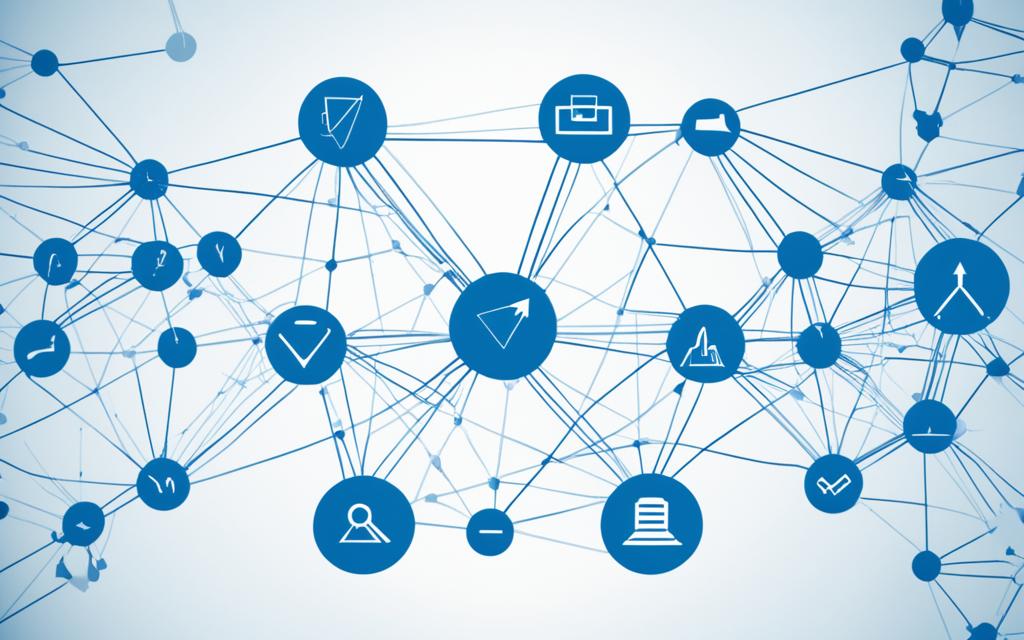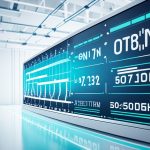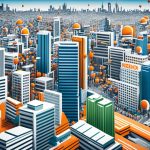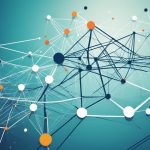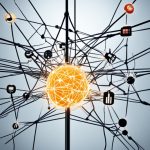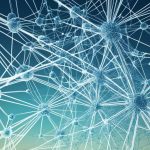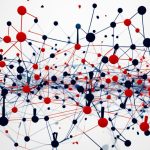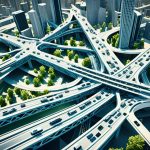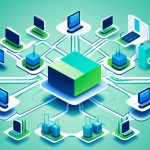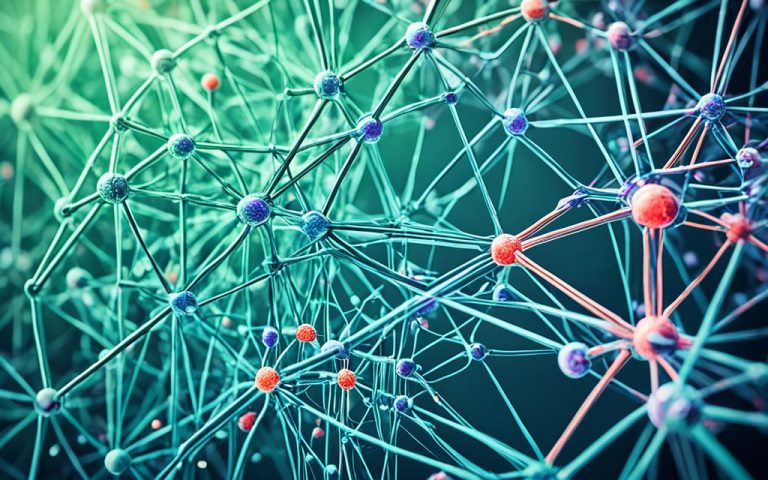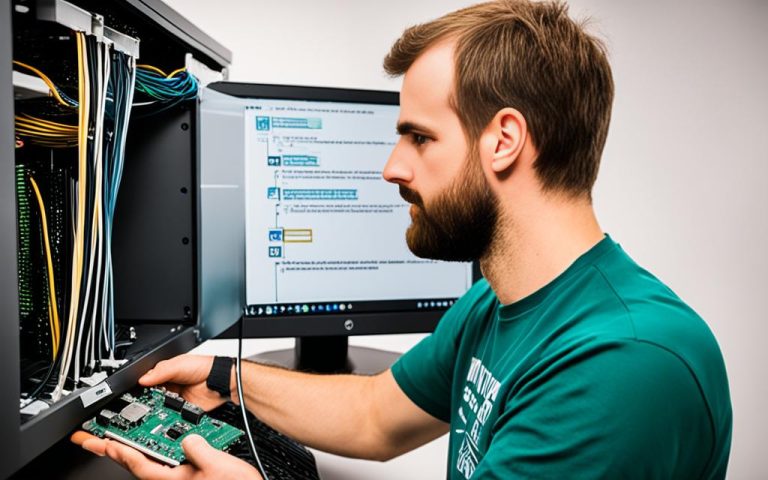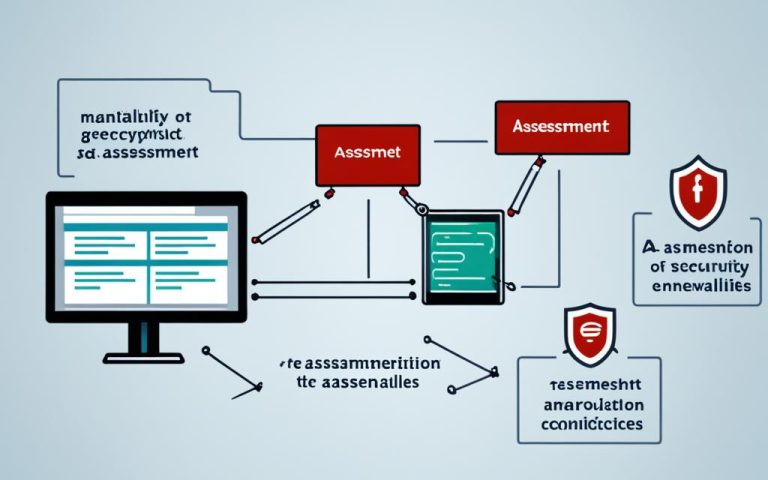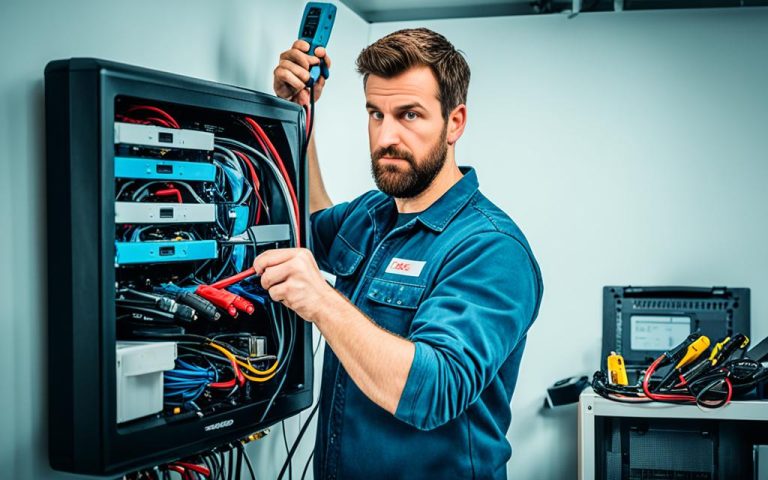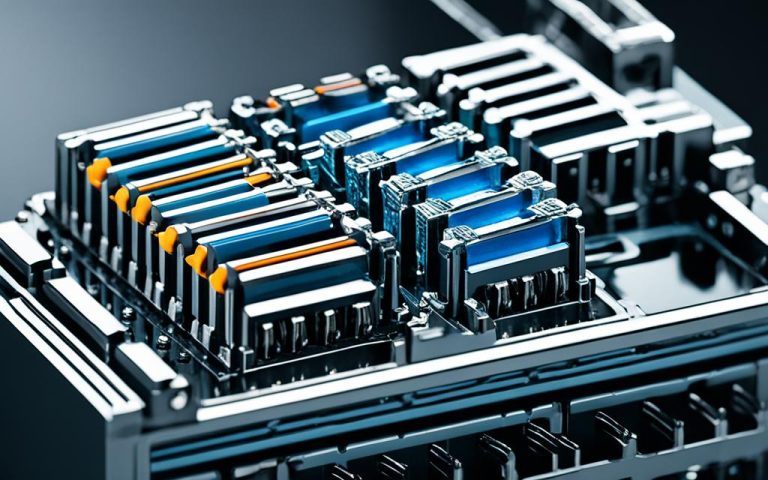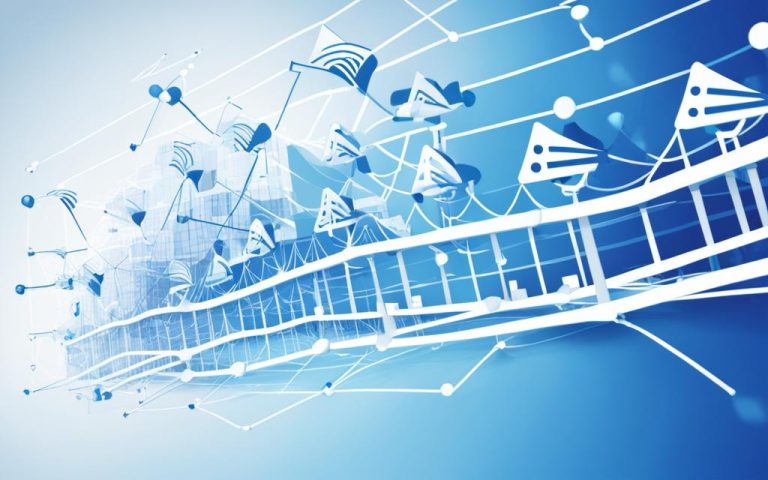Political networks link people, groups, and organizations in the political world. They shape policy and affect political outcomes1. These networks grow through working together and sharing resources. This helps information and power move around the political scene.
Knowing about political networks helps us understand how policies are made and their effects on society. They’ve been around since the 18th century. Back then, more political writings like books and newspapers helped create these networks2.
The Encyclopédie, a famous book from 1751 to 1780, spread ideas worldwide and shaped political talks2. Better mail and transport made it easier for politicians to connect back then2.
Key Takeaways:
- Political networks are networks of interconnected individuals, groups, and organizations in the political sphere.
- They play a crucial role in shaping policy decisions and influencing political outcomes.
- Political networks have a long history, with their formation dating back to the 18th century.
- The dissemination of political literature and advancements in communication infrastructure facilitated the formation of political networks.
Understanding Political Networks
Political networks are complex webs of connections that shape how decisions are made and power is shared. They involve many actors and the relationships between them. To understand these networks, we must look at how these actors work together.
These networks include formal groups, political parties, and social movements. They also include individuals who work together to reach goals or advance their interests. By studying these networks, we can see how power and influence work in politics.
Research on political networks is growing, thanks to data from various sources. For example, the ECPR Standing Group on Political Networks looks at different discussions on political networks3. These discussions cover topics like social movements and how big data affects political networks4.
Looking at social network site data is also key in political science3. Researchers want to understand how these networks work and affect politics. They aim to learn how these networks change and impact decisions.
Climate change policy networks are a big focus in this area3. As we face climate change, knowing how these networks work is vital for making good policies.
Online and social media networks are also important4. With Politics 2.0, these platforms have become key for political talk and action. Social media analytics help us study these networks and understand public opinions5.
Blogs and social media let people share their views and join in political discussions5. Studies show how social media changes political communication and what people think5.
By looking closely at political networks, we can learn a lot about how decisions are made and policies are formed. Studying these networks helps us adapt to changes in politics and use networks for good.
References:
- S42 – ECPR Standing Group on Political Networks.
- – Panel 1: Social Movement Networks with Chair Mario Diani
- – Panel 2: Dealing with political networks in times of big data chaired by Isabelle Borucki and Javier Ruiz Soler
- – Panel 3: Climate Change Policy Networks chaired by Petr Ocelík and Karin Ingold
- – Panel 4: Linking policy networks and policy learning chaired by Cécile Riche, Manuel Fischer, Stéphane Moyson
- S44 – ECPR Standing Group on Political Networks.
- – Panel 1: Environmental Policy Networks
- – Panel 2: Social Movement, protest, and participation networks
- – Panel 3: Online and social media political networks
- – Panel 4: Network Experiments in the Social Sciences
- – Code: P052 – Coalitions and Alliances in Political Networks
- – Code: P272 – Online and Social Media Political Networks
- – Code: P313 – Political Networks in the Czech Republic
- Various sources on social media analytics, blogging, and sentiment analysis in politics.
Key Elements of Political Networks
Political networks are key to understanding how politics works. They are shaped by the people involved, the resources they have, and how they connect with each other. These networks also shape how politics affects us.
At the center are the people in politics. This includes politicians, officials, lobbyists, and groups with an interest in politics. Their roles and skills shape the network’s workings6.
Resources are also vital. They can be money, connections, knowledge, or influence. How these resources are used affects who has power and what they can achieve6.
How people connect within networks is crucial too. These connections can be formal or informal. They help share information and resources, and coordinate actions6.
Interactions within these networks are key. They include negotiating, making decisions, working together, and solving conflicts. These actions shape policy and politics6.
Knowing about political networks helps us understand their role in politics. By looking at the people, resources, connections, and interactions, we can see how they work. This knowledge helps in making better policies and decisions7.
Types of Political Networks
Political networks are key in shaping political decisions and power. They come in two main types: formal and informal. Knowing about these networks helps us understand how power spreads in politics.
Formal Political Networks
Formal networks are organized and follow set rules. They have clear roles and rules. Examples include political parties and government bodies. (keyword: formal)
In these networks, power goes to certain people or positions. Decisions are made following set rules. This makes things clear and accountable. But, they can be slow and exclusive. (keyword: formal)
Informal Political Networks
Informal networks grow from personal ties and shared goals. They are less strict and share info and resources easily. These can be groups, organizations, or movements. (keyword: informal)
Here, power spreads among members based on who you know and what you know. Decisions can change fast. These networks help underrepresented groups speak up. But, they can be biased and lack clear rules. (keywords: informal, informal)
Combination and Interplay
Formal and informal networks often work together in politics. Formal networks might use personal connections. Informal ones might try to influence formal decisions. (keyword: formal, informal)
Knowing how these networks interact helps us understand power and decision-making. By looking at both, we can see how influence works and policies are made.
| Type of Network | Characteristics | Examples |
|---|---|---|
| Formal Networks | Structured, hierarchical, established rules and procedures | Political parties, government bodies, official institutions |
| Informal Networks | Emerges spontaneously, based on personal relationships and shared interests | Interest groups, advocacy organizations, grassroots movements |
“The interplay between formal and informal networks within political systems shapes power dynamics and decision-making processes.”
Reference:8 Statistical data extracted from Link 1.
Influence and Power in Political Networks
Influence and power are key in political networks. They shape decisions and affect political outcomes. It’s vital to grasp how influence and power work in these networks to understand their workings and effects.
Network Centrality: A Key Determinant of Influence and Power
Network centrality is a major factor in influence and power in political networks. It means how well an actor connects with others in the network. Those at the center have more resources and info, making them more influential9.
Having access to resources is important for influence and power. Actors with valuable resources can shape decisions and steer political networks. Those well-connected can also connect others, boosting their own power9.
Good info flow is crucial too. Actors at the center control and use info well. This lets them shape stories, control info, and influence decisions. This gives them a big edge in influence and power9.
Types of Power in Political Networks
Power in political networks comes in different forms. Networking Power, Network Power, and Networked Power are three main types that affect influence and network dynamics9.
Networking Power is about the power of being part of a network over being left out. Being included has more benefits than being excluded, but exclusion hurts more9.
Network Power is about setting rules for being part of a network. These rules keep the network working well and help everyone communicate better9.
Networked Power is about using relationships to make others do what you want. Those with a lot of Networked Power can set political agendas and make big decisions in networks9.
The Role of Power in Networked Societies
In networked societies, power flows through networks. These networks can be anything from the global financial market to the US military. Power in these networks depends on their goals and structure. Actors like governments and media shape the power and influence in these networks9.
The mix of influence, power, and political networks is complex. Knowing about different powers and how they show up in networks helps us understand political networks better.
Impact of Political Networks on Policy Making
Political networks greatly affect how policies are made. They include many actors and groups that shape policy decisions.
Research has shown how policy networks work and their effects. For instance, a study looked at 149 actors in four policy networks across democracies. It found big differences in how these networks work10.
In places where power is shared and working together is encouraged, networks are more organized. This leads to better cooperation and decisions made together10. But in places where one group has a lot of power, networks can be less open to others10.
How networks work is also shaped by the rules of a place, but this area is not well-studied10. Researchers look at how networks and power affect policy and decisions10.
Political networks also affect things beyond local areas. In the U.S., combining Policy Network Analysis with the Advocacy Coalition Framework helps explain how groups form and act together11. This framework shows how personal connections and networks help keep policies stable11.
The Punctuated-Equilibrium theory shows that policy changes can be sudden and unpredictable. Networks help deal with these changes and shifts11. Policy entrepreneurs, who push for change, play a big role in these shifts11.
At a global level, policy networks are also important. The Habitat Jam, with 39,000 participants, showed how the internet can bring people together for sustainable cities12.
Multi-stakeholder policy networks offer a new way to make policies. They help with networking and sharing knowledge among governments, businesses, and others12.
In summary, political networks have a big impact on making policies. They affect many political systems and policy areas. By understanding these networks, we can learn how to make policies better and work together more effectively.
Examples of Political Networks in Action
Political networks are key in making policy and guiding decisions. Let’s look at some examples and their effects.
Lobbying Groups
Lobbying groups are a prime example of political networks pushing for policy changes. They bring together people or groups to influence lawmakers and decision-makers6. With their combined strength, they can set the agenda and push for their goals6.
Interest Groups
Like lobbying groups, interest groups aim to make their mark in politics. They speak for certain industries, professions, or groups6. They use actions like lobbying, campaigns, and legal steps6 to get policies that help them6.
Think Tanks
Think tanks are institutes that offer policy advice and ideas. They are powerful networks by providing knowledge, doing research, and pushing certain views6. They publish research, host events, and build ties with policymakers to shape discussions and influence policies6.
Case Study: Lobbying for Climate Change Policies
A good example of political networks at work is the push for climate change policies. Groups like environmental organizations, science bodies, and businesses come together to fight climate change and support green practices13. By sharing resources and support, they can push lawmakers to make stronger environmental laws13.
Case Study: Networks in Social Movements
Another great example is social movement networks fighting for things like civil rights, equality, or peace. These networks include groups, activists, and individuals aiming for common goals and change3. Through actions like protests, online campaigns, and community efforts, they can make their voices heard and pressure policymakers3.
| Case Study | Network Type | Focus |
|---|---|---|
| Lobbying for Climate Change Policies | Lobbying groups, environmental organizations, scientific institutions, industry stakeholders | Advocating for climate change mitigation and sustainable practices |
| Networks in Social Movements | Social movement networks, organizations, activists | Promoting civil rights, gender equality, anti-war campaigns |
These examples show how political networks can change policies and society. By using their strength and resources, they push for certain goals, advocate for policy changes, and make different voices heard6133.
Challenges and Criticisms of Political Networks
Political networks have their ups and downs. They are shaped by the connections between politicians and groups with special interests. These networks face big challenges.
One big issue is power getting too concentrated. Critics say this can harm democracy and fair representation14. It might stop smaller or less heard groups from having a say, reducing the variety of views.
Transparency and being accountable are big worries too. Political networks often work in secret, making it hard for people to know what’s going on1415. This can make people think there’s favoritism, corruption, or too much influence from certain groups.
Some also question how well political networks work towards their goals. Studies show that politicians and groups might not keep their promises or stick to their original plans14. This can make people lose trust in politics.
Another point of criticism is the polarization in these networks. They’re meant to bring people together and help solve problems, but sometimes they don’t do much to reduce differences14. This can make it hard to tackle big issues and find common ground for policies.
Even with these problems, political networks are key in today’s politics. As politics changes, we need to work on making these networks more open, fair, and responsible. This will help keep our democracy strong.
| Challenge/Criticism | Reference Number |
|---|---|
| Concentration of power and limited representation | 14 |
| Lack of transparency and accountability | 1415 |
| Deviation from campaign promises and policy positions | 14 |
| Low degree of polarization | 14 |
Ethics and Integrity in Political Networks
Looking into political networks, we see that ethics and integrity are key. They keep these systems working right. Political networks help make decisions and shape policies. So, everyone in them must act with high morals and be open16.
This section talks about why ethics and integrity matter in political networks. It shows how they help make society fair and democratic.
The Role of Ethics in Political Networks
Ethics are moral rules that guide how people act. They ensure fairness, honesty, and the community’s well-being. In political networks, sticking to these ethics is vital for trust and legitimacy16. Political figures must put the public’s interests first, acting as guardians of the people they represent.
Decisions and policies in political networks rely on ethics. By following principles like fairness and transparency, they make sure policies match citizens’ values and needs16. Ethics also stop power abuse, ensure responsible use of public funds, and protect the vulnerable.
The Significance of Integrity in Political Networks
Integrity means being honest, consistent, and trustworthy. In political networks, it’s key for trust16. When leaders show integrity, they build confidence in the system. This encourages citizens to take part in politics.
Integrity means high ethical standards in both personal and work life. Politicians must be open about their actions and avoid corruption16. A culture of integrity stops bad behavior, ensures fairness, and strengthens democracy.
The Need for Codes of Conduct and Regulations
To keep ethics and integrity in political networks, we need codes of conduct and regulations16. These set clear rules for behavior and make people responsible for their actions. They highlight the need for ethical decisions, openness, and accountability.
With these codes and rules, political networks can encourage ethical actions and prevent corruption16. They also have a way to deal with integrity issues, making sure those who act unethically face consequences.
Image: Ethics and Integrity in Political Networks
Future Trends in Political Networks
The digital era has changed how we think about political networks, setting the stage for new trends. These trends will shape our political world17. As we move through the 21st century, political networks are changing. They are adapting to technology and the shifts in society.
The Impact of the Digital Era
Traditional power structures are being challenged in the digital era18. Social media and online tools have made information more accessible. Now, people can join political discussions, connect with others, and make new friends across different beliefs18.
This digital world brings both good and bad changes for political networks. It helps with spreading messages, organizing groups, and getting people to support causes17. But, it also raises issues like fake news, biased algorithms, and privacy concerns. Political groups must find ways to deal with these issues to succeed online.
Emerging Trends in Political Networks
Here are some trends that will shape the future of political networks:
- Connectedness: Societies are becoming more connected, and political networks will too. Digital tools and the internet of things will make it easier for people to work together and share information18. This will shake up old power structures and let new groups make a difference.
- New Work: New ways of working, like agile methods, will change political groups. Governments will use digital tools to make policies more efficiently18.
- New Learning: Learning and innovation will be key for political networks. Political parties will work together more and use global platforms to share knowledge and grow18.
These trends show that political networks need to use technology and be flexible to succeed in the digital age. By using new tech, like blockchain, they can make things more open, accountable, and engaging for citizens17.
Impacts of Political Networks on Society
Political networks go beyond politics. They shape our social norms, change public opinion, and affect how resources and opportunities are shared. By understanding these networks, we can work towards a fairer, more democratic world.
Studies show how political networks affect society. For example, social networking sites can make democracy stronger by letting citizens take part in civic activities19. The internet is key for Americans to join in political discussions and make their voices heard19.
Historically, political networks have changed society. In 1924, Herbert Hoover saw how radio could reach millions, showing the power of media to shape opinions19. Today, the internet helps citizens become active in governing themselves19.
Online forums like Minnesota E-Democracy let people talk about politics and see different views19. Research shows that these sites can change how people think and vote, with 33% of users saying they were influenced19.
Political networks can connect citizens with leaders. In 2004, Howard Dean used the internet to rally supporters and fund his campaign19. Candidates like Mitt Romney in 2008 used social media to reach voters19.
| Statistical Data | Implication |
|---|---|
| More than 80% of Koreans reported going online for news, compared to 66% of Americans in 202120. | Koreans rely more on digital sources for news, showing a strong digital news culture20. |
| Both the United States and South Korea had a social media usage rate of 42% for accessing news20. | Both countries use social media a lot for news, showing its importance in information gathering20. |
| Two-thirds of Koreans reported using the online news aggregating and search engine website Naver for news on a weekly basis20. | Naver is a key news source for Koreans, highlighting its role in the media scene20. |
| Less than 20% of Americans reported going online for news on a weekly basis20. | A smaller number of Americans regularly look for news online, compared to Koreans20. |
Political networks shape our political views and society. Friends often influence our political beliefs within these networks1. People tend to connect with those who share their political views, making these networks more homogeneous1.
Understanding the effects of political networks is key to a better future. By using their potential and addressing challenges, we can create a more informed and democratic society19. By promoting dialogue, diversity, and technology, we can make political networks that empower people and bring about social change.
Conclusion
Political networks are key in shaping policies and affecting political actions. They help us understand the complex world of politics better. By studying these networks, we learn about their structure and how they work.
Studies show that many Koreans and Americans use online platforms for news20. In 2021, over 80% of Koreans and 66% of Americans looked for news online. This shows how big a role digital media has in politics.
Research also points out the role of network structures in politics13. The best networks, like stars or lines, depend on the beliefs of the people in them. They also rely on groups sharing similar views.
Looking at history2, we see how political networks have changed over time. They’ve been shaped by political books and big events like the French Revolution. These networks have helped shape important decisions and spread out liberal or conservative ideas.
In summary, political networks are complex and affect our society and how we govern ourselves. By understanding them better and using them ethically, we can make our political system more open and democratic.
FAQ
What are political networks?
Political networks are about the connections between people, groups, and organizations in politics. They form through working together, sharing resources, and talking to each other.
How do political networks influence policy decisions?
Political networks help shape policy and affect political outcomes. They set the agenda, influence leaders, get people on board, and push for certain policies.
What are the key elements of political networks?
Key parts of political networks are the people involved, the resources they have, how they connect with each other, and how they interact.
What are the types of political networks?
There are formal and informal political networks. Formal ones are organized with clear rules and structures. Informal ones grow from personal ties, trust, and shared goals.
How does influence and power work within political networks?
In political networks, influence and power come from being central, having resources, making connections, and sharing information well. Those at the center of the network usually have more power.
How do political networks impact the policy-making process?
Political networks can greatly affect how policies are made. They set the agenda, influence leaders, get support, and advocate for policies. Actors use their connections and resources to push for what they want.
Can you provide examples of political networks in action?
Yes, many examples show political networks making a difference. Lobby groups, interest groups, and think tanks use networks to push for policy changes or certain beliefs.
What are the challenges and criticisms of political networks?
Some say political networks can make power too concentrated, hurting democracy. There are also worries about their lack of transparency and accountability, as they often work privately and can be swayed by special interests.
How can ethics and integrity be maintained within political networks?
Keeping ethics and integrity in political networks is key for fair democracy. Actors should follow ethical standards, focus on the public good, and be open and accountable. Rules and codes can guide their actions.
Are there future trends in political networks?
Yes, the digital age has changed political networks a lot. Social media and online tools help form and grow networks, offering new ways to speak out and organize. We might see more use of new tech like blockchain in these networks.
How do political networks impact society?
Political networks affect more than politics. They shape social attitudes, influence public views, and change how resources and chances are shared. Knowing how they affect society helps us work towards fairness, equality, and democracy.
Source Links
- https://polisci.osu.edu/sites/polisci.osu.edu/files/NebloESFpickPeople062014_0.pdf – Network effects on political attitudes: Structure, influence, and coevolution
- https://www.ieg-ego.eu/en/threads/european-networks/political-networks – Political Networks — EGO
- https://ecpr.eu/Events/Event/SectionDetails/639 – Political Networks
- https://ecpr.eu/Events/Event/SectionDetails/553 – Political Networks
- https://link.springer.com/10.1007/978-1-4939-7131-2_86 – Political Networks
- https://www.colorado.edu/polisci/psci-7185-fall-2022 – PDF
- https://ecpr.eu/Events/Event/SectionDetails/1031 – Political Networks
- https://www.princeton.edu/~starr/articles/articles05/Starr-PoliticalNetworking-4-05.htm – Political Networking
- https://ijoc.org/index.php/ijoc/article/download/1136/553 – A Network Theory of Power
- https://research.utwente.nl/files/277336263/Metz_2022_Policy_networks_across_political_sy.pdf – Policy Networks Across Political Systems
- https://files.eric.ed.gov/fulltext/ED574663.pdf – PDF
- https://gsnetworks.org/wp-content/uploads/Policy-Networks.pdf – PDF
- https://warwick.ac.uk/fac/soc/economics/staff/fsquintani/research/political_networks.pdf – PDF
- https://www.ncbi.nlm.nih.gov/pmc/articles/PMC7081992/ – A complex network approach to political analysis: Application to the Brazilian Chamber of Deputies
- https://www.cambridge.org/core/journals/ps-political-science-and-politics/article/political-networks/83ED34E1C7E23F7B565EACF6A21BFE2B – Political Networks | PS: Political Science & Politics | Cambridge Core
- https://www.unodc.org/e4j/en/integrity-ethics/module-13/key-issues.html – Integrity Ethics Module 13 Key Issues
- https://www.cambridge.org/core/journals/ps-political-science-and-politics/article/networks-in-political-science-back-to-the-future/C6ACA78B0299F195F0977E3EA224F2C3 – Networks in Political Science: Back to the Future | PS: Political Science & Politics | Cambridge Core
- https://innovationinpolitics.eu/polis-project/blog/the-3-trends-shaping-the-political-organisation-of-the-future/ – The 3 trends shaping the political organisation of the future – The Innovation in Politics Institute
- https://fisherpub.sjf.edu/cgi/viewcontent.cgi?article=1050&context=ur – The Impact of Social Networking Sites on Politics
- https://www.ajpor.org/article/37593-the-roles-of-political-network-diversity-and-social-media-news-access-in-political-participation-in-the-united-states-and-south-korea – The Roles of Political Network Diversity and Social Media News Access in Political Participation in the United States and South Korea | Published in Asian Journal for Public Opinion Research

